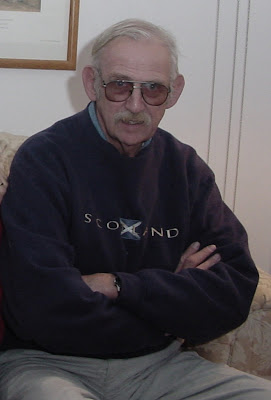In memoriam
 Robert L. Fulton, M.D. (April 11, 1938-March 10, 2005)
Robert L. Fulton, M.D. (April 11, 1938-March 10, 2005)My father was not yet 67 years old when he died. He was in the hospital, recovering from surgery from a stroke that he had had the week before. The plan was for us to go visit him the following week, once school was out. I still have on my voice mail the last message that he left: "Hi, Rachel, this is your Dad [as if I wouldn't know!]. I'm doing okay. The surgery went very well. I've still got a terrible cold [cough], but other than that it's progressing nicely. Thanks for calling." The next day, he was dead, from an embolism in his lungs. I remember my husband coming to find me and my son at fencing practice, saying, "The hospital is on the phone, they need to talk to you. Your dad has collapsed and they're not sure how much longer he will live." By the time I got to the phone, he was gone.
How many things are wrong with this picture? I wasn't there with him when he died, but then nobody was expecting that he would. The doctor that I spoke to on the phone had known me since I was a child, having been one of my father's residents. My father trusted him and his diagnosis absolutely, so when they told me that he was recovering well, I did not rush to see him. I thought there would be time. On other other hand, I had seen him just months before at Christmas, and regularly for several years before. Just the summer before he died, my husband, son and I had all gone down to watch him race his Buick Grand National; I will never forget how happy he was that we were there.

The lessons here are easy enough to list, but hard to live: Never expect that there will be more time; there might not be. Visit your family while you can. Try to be there when your loved ones die. But I wasn't there and I still can't forgive myself. And yet, we die as we live. My father had a hard time taking vacations from his work; I was reluctant to give up the time I had planned for working on an article that I was trying to finish (I finished it the day after he died). I feel bad that I wasn't there for him, but then I was living the way he had taught me to, dedicated to my work, pursuing the big questions. And, indeed, he died as he lived, surrounded by people who worked with him and who loved him, never having taken proper care of himself, always sacrificing his health to his patients and his livelihood to his friends. One day maybe I'll be able to write about what my father meant to me. For the moment, I just need to remember him.
R.I.P.




Comments
Post a Comment
Thank you for taking the time to respond to my blog post. I look forward to hearing what you think!
F.B.